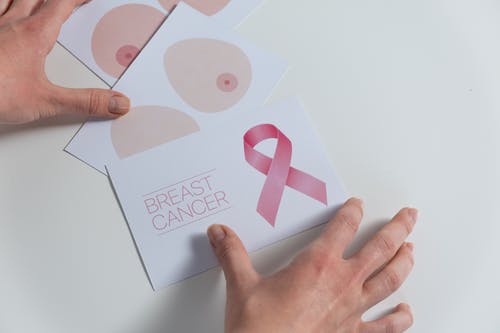Women with prolactin levels and schizophrenia could develop breast cancer.
A new study published online in The Lancet and funded by the Finnish Ministry of Social Affairs and Health has found that antipsychotic drugs that raise prolactin levels are significantly tied to an increased risk for breast cancer in women with schizophrenia. Researchers analyzed data on Finnish nationwide registers on more than 30,000 women diagnosed with schizophrenia finding that 1069 were diagnosed with breast cancer.
The study’s results showed long-term use of these antipsychotics was associated with a “56% increased risk of developing breast cancer in comparison with exposure of short duration,” the authors wrote. However, “no significant association was found with cumulative exposure to prolactin-sparing antipsychotics.”

More specifically, they found, “Of 30,785 women diagnosed with schizophrenia between 1972 and 2014, 1069 were diagnosed with breast cancer between Jan 1, 2000, and Dec 31, 2017. Compared with 5339 matched controls, 1–4 years cumulative exposure or 5 or more years to prolactin-sparing antipsychotics (including clozapine, quetiapine, or aripiprazole) was not associated with an increased risk of breast cancer in comparison with minimal exposure (<1 year).” Furthermore, “When compared with less than 1 year of exposure to prolactin-increasing antipsychotics (all other antipsychotics), 1–4 years of exposure was not associated with an increased risk, but exposure for 5 or more years was associated with an increased risk. The risk for developing lobular adenocarcinoma associated with long-term use of prolactin-increasing antipsychotics was higher than that of developing ductal adenocarcinoma.”
When women are pregnant or nursing a baby, their prolactin levels increase so they can produce breast milk. However, women can also develop high prolactin levels even if these factors don not exist, and this is when the condition can become more worrisome and warrants medical attention. High concentrations of prolactin are typically associated with a higher risk of developing breast cancer. The current study’s focus on antipsychotics as a potential contributor to high levels sheds lights on one reason the condition might be present.
“In case of planning for long-term antipsychotic [therapy], prefer non-prolactin-raising antipsychotics in females and inform patients about a potential risk to allow for informed shared decision making,” explained coauthors Christoph Correll, MD, professor of psychiatry and molecular medicine, and Donald and Barbara Zucker School of Medicine at Hofstra/Northwell, Hempstead, New York.
“Monitoring prolactinemia and addressing hyperprolactinemia are important in women with schizophrenia who are treated with prolactin-increasing antipsychotics,” Correll said, adding, “Breast cancer is 25% more prevalent among women with schizophrenia than among women in the general population. Antipsychotics have long been suspected as a potential culprit, but research results have been inconsistent.”
In the United States, more women are diagnosed with breast cancer than any other type of cancer (other than skin cancer). In 2021 alone “an estimated 281,550 women in the United States will be diagnosed with invasive breast cancer, and 49,290 women will be diagnosed with non-invasive (in situ) breast cancer,” according to public data. “From 2008 to 2017, invasive breast cancer in women increased by half a percent each year.” This cancer can be deadly if not caught early and it is important to understand its underlying causes.
Sources:
Antipsychotics Tied to Increased Breast Cancer Risk


Join the conversation!